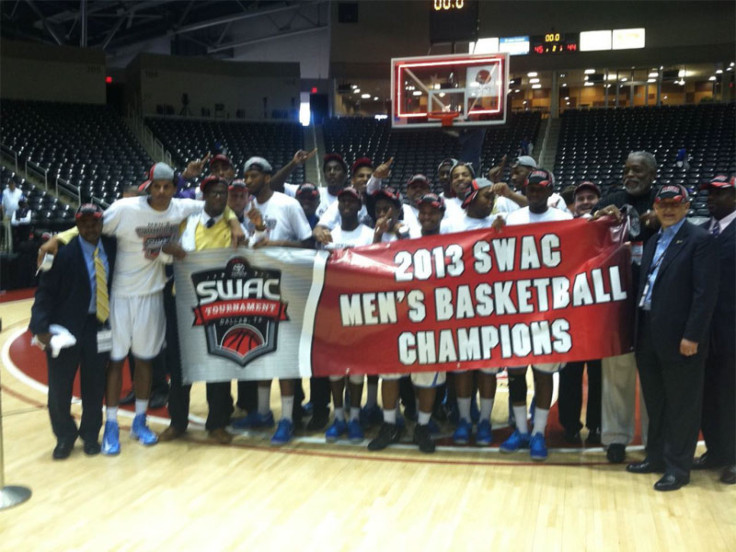March Madness 2013: Why We Root For Underdogs In The NCAA Tournament

George Mason’s improbable Final Four run in 2006. Butler University's back-to-back NCAA Championship game appearances in 2010 and 2011. These are two of the underdog stories that define March Madness.
Why is it that we get excited to see a No. 15 seed knock off a No. 2 seed, or hope for the day when a No. 16 seed finally defeats a No. 1 seed?
In psychology, there are two theories to explain the maxim “everyone loves an underdog.”
One theory revolves around expectations, or that “unexpected emotions carry more weight,” according to Joseph Vandello, associate professor of psychology at the University of South Florida.
“If the top dog wins, the emotional payoff for a victory is not that great,” Vandello said. “If [the underdogs] win, it feels really good. Rooting for the underdog is a better strategy.”
But Vandello, author of the 2008 study “The Underdog Effect,” does not subscribe to that theory.
Vandello said he thinks it has more to do with people looking for justice in the world. Underdogs achieve that justice when they win against the odds-on favorite, whether it’s in the NCAA tournament, business, politics or international relations.
“In general, people don’t like inequality,” he said. “We root for underdogs because we want to see justice restored.”
Steve Lee, associate professor of psychology at UCLA, said people like to root for underdogs because there’s more familiarity with those who have the odds stacked against them.
“I think there’s a certain kind of process of identification that a lot of people have with underdogs,” he said. “It’s easier to relate to.”
Expectations also play into the support for an underdog, Lee said.
“There’s probably a lot more satisfaction that people can get from being in the minority and proven correct,” he said.
Another factor in the underdog’s corner is that favorites are expected to win. Highly favored teams may feel a sense of relief, rather than a sense of satisfaction, if they win the championship. Underdogs can feel joy just from winning one game against a team they weren’t supposed to beat.
“When underdogs win, especially during March Madness, it’s such an obvious sense of accomplishment that you see in the team and their alumni and their students,” Lee said. “It almost feels like they appreciate it more. I think we like to see that emotion. In that moment, there might not be something more important to them.”
The single-elimination format of the so-called Big Dance lends itself to those who find underdogs appealing. Each time an underdog wins, it faces even more improbable odds of defeating another team with more talent.
But that factor is dissipated when it comes to other sports, such as professional basketball and baseball, where playoff series can last for five or seven games.
“This underdog effect, even though it’s pretty robust, it’s also really ephemeral,” Vandello said, who pointed out that people may stop rooting for an underdog in such a format just when the team is on the verge of victory.
The format of the NCAA tournament also may give underdogs an advantage, Lee said, because higher-echelon teams may not be as familiar with teams from lower conferences.
“Most teams, as they advance through the bracket, will at some point face one or two teams they don’t know much about,” he said. Lee added that college’s “one and done” rule, in which a highly talented freshman can make the leap to the NBA after one collegiate season, also benefits underdogs because their teams often stick together for more years than teams with superstars who jump to the big leagues after one season.
Vandello said in one study, when subjects were told that a particular professional sports team had a higher payroll and a better record than their opponent, participants rooted for its opponent. Yet when the team with the lower payroll had an overwhelmingly better record, subjects chose the team with the higher payroll but a dismal record.
“People will root for the underdog unless the underdog has ample resources,” the professor said.
Vandello had participants watch 15 minutes of a European basketball championship game (to make sure subjects were unfamiliar with the teams and their pedigree.) The subjects felt that while the top teams were physically better, they generally viewed the underdog as playing with more heart.
But there are instances when people will say they root for the underdog yet choose the top dog.
“When the stakes get higher, that [underdog effect] goes away,” Vandello said, especially when it comes to business.
“Mom-and-pop shops are loved, but everyone goes to Wal-Mart,” he said.
© Copyright IBTimes 2025. All rights reserved.






















